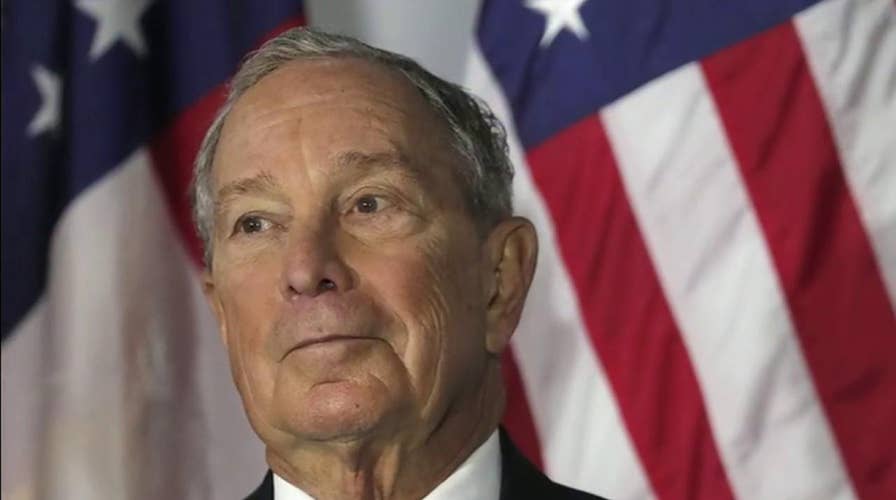Mike Bloomberg campaigns in Vermont and Maine as he focuses on Super Tuesday
Democratic presidential candidate Mike Bloomberg is skipping both Iowa and New Hampshire, making Super Tuesday the main focus of his campaign; Molly Line reports from Burlington, Vermont.
Everyone laughed when Michael Bloomberg parachuted into the Democratic presidential race in November and announced he would skip all of the early contests in small states and focus instead on delegate-rich states in the March primaries.
That strategy doesn’t seem so silly now. Iowa’s fiasco of a caucus process makes it more likely there will be a muddled outcome and a continuation of a divided Democratic field of candidates.
Iowa’s failure to create a clear picture of the race means that all of the Democratic candidates other than Bloomberg will have trouble raising needed money for those big primaries in March. Bloomberg, of course, has deep pockets that stretch to his shoes: in his first month of campaigning, he spent over $200 million - more than double what Donald Trump spent in all of the GOP primaries in 2016. Bloomberg has also been able to visit 24 states and 58 cities in the last month, while other candidates have been confined to diners in Iowa and New Hampshire.
TRUMP CALLS IOWA CAUCUSES AN 'UNMITIGATED DISASTER'
The one Democrat who so far raised significant money from small donors he can continue to tap for support is Bernie Sanders. But Sanders is the Democratic Party’s worst nightmare: an avowed socialist with little appeal to moderate independents and a reputation of not playing well with other Democrats.
One Democratic officeholder in a Trump-leaning state told me he was terrified that Bernie could be the nominee: “Not only would he lose my state but he would depress turnout for Democrats down-ballot. In this election, we are electing state legislators who will redraw district lines for Congress that will last a decade. Bernie could put my party in permanent minority status here.”
CLICK HERE TO SIGN UP FOR OUR OPINION NEWSLETTER
Bloomberg promises an alternative to Democrats who fear and loathe Bernie. He has promised to spend millions on behalf of other Democrats if he is the nominee, providing valuable support against Republican challengers.
Of course, the irony is that Bloomberg is as much a stranger to the Democratic Party as Bernie is. Sanders has never formally registered as a Democrat, stubbornly insisting on remaining an independent. Bloomberg was a Republican until 2007 when he became an independent. He only formally became a Democrat in October 2018. But establishment Democrats believe he is a far more reliable champion of their interests than Sanders ever would be.
CLICK HERE TO GET THE FOX NEWS APP
Bloomberg has still only an outside chance of his unorthodox strategy succeed. But he has taken risks before that have paid off. In 2001, everyone dismissed his chances of succeeding term-limited Mayor Rudy Giuliani in New York City. He was a nominal Republican in a city that was five to one Democratic. But then Democrats had a highly divisive primary that was won by Mark Green, a radical by even New York City standards. The 9/11 terrorist attack left many New Yorkers convinced they needed a manager and not an ideologue to guide the city through tough times. Bloomberg was able to knit together an unlikely coalition and win by two percentage points.
With that experience under his belt, Bloomberg no doubt believes the current political unrest can be to his benefit. In normal times, a billionaire from New York City would have no chance of becoming president. But on the other hand, look who already sits in the White House today.
